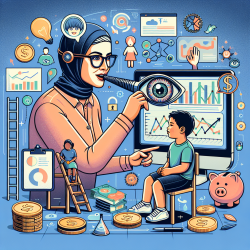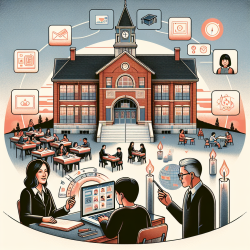Embracing Resilience: Unlocking Potential in Challenging Times
In the realm of medical education, the recent study titled Are medical students happy despite unhappy conditions: a qualitative exploration of medical student cohorts during disruptive conditions sheds light on the profound impacts of the COVID-19 pandemic on medical students. As practitioners in the field of speech-language pathology and online therapy, we can draw valuable insights from this research to enhance our practice and support our clients, especially children, in navigating similar disruptions.
Understanding the Study's Insights
The study conducted at a medical school in the southwestern United States explored how medical students' happiness and professional identity were affected during the pandemic. Through qualitative interviews and follow-up surveys, the researchers identified key themes that resonate across various educational and professional domains.
Key Findings and Their Implications
- Primacy of Relationships: The study highlights the importance of personal and professional relationships in maintaining emotional wellness. For speech-language pathologists, fostering strong connections with children and their families can significantly enhance therapeutic outcomes.
- Resilience and Stress Management: Medical students demonstrated resilience by employing various strategies to manage stress. Similarly, practitioners can incorporate stress management techniques into therapy sessions to help children cope with challenges.
- Professional Identity and Imposter Syndrome: The pandemic created a risk factor for imposter syndrome among medical students. In our practice, we must be vigilant in supporting children in developing a positive self-concept and professional identity, even in the face of disruptions.
Actionable Steps for Practitioners
Based on the study's findings, here are some actionable steps practitioners can take to improve their skills and support children effectively:
- Enhance Communication: Prioritize open and empathetic communication with children and their families to build trust and rapport.
- Incorporate Resilience Training: Integrate resilience-building activities into therapy sessions to empower children to overcome challenges.
- Promote Social Connections: Encourage children to maintain social connections, even virtually, to enhance their emotional well-being.
- Address Imposter Syndrome: Be aware of signs of imposter syndrome and provide support to children in developing a strong sense of self-worth.
Encouraging Further Research
The study underscores the need for ongoing research into the long-term impacts of educational disruptions on professional identity and mental health. As practitioners, we should advocate for and engage in research that explores the effects of similar disruptions in our field.
To read the original research paper, please follow this link: Are medical students happy despite unhappy conditions: a qualitative exploration of medical student cohorts during disruptive conditions.










